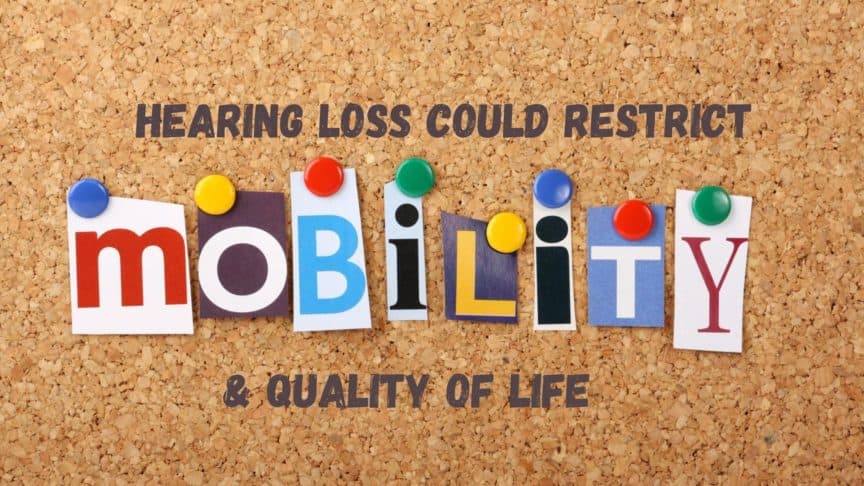- How to Care for Infants With Hearing Loss - April 15, 2024
- Hearing Aid Tips for Runners - April 5, 2024
- Overcoming Misconceptions Around Hearing Aids - March 27, 2024
What contributes to a good quality of life? Each individual has a different answer to this question, but we can trace some common threads that tend to contribute to a good quality of life. One of the most common reports among those with a good quality of life is having an active lifestyle. The ability to get out and about, pursuing interests and connecting with friends and loved ones tends to make us feel energized and full of life. On the other hand, those with mobility issues tend to report a worse quality of life, on average. When mobility is limited, people tend to feel isolated, disconnected, and unable to achieve independence. Many things can contribute to limited mobility, but researchers in Finland have recently discovered a factor that might come as a surprise: hearing loss. Let’s take a moment to look at the study and to understand how they came up with this surprising relationship. Then, we can think about the benefits of getting treatment for hearing loss that extend all the way to a good quality of life.
Mobility and Hearing Loss
The study was conducted by researchers at the Universities of Jyväskylä and Tampere in Finland. Rather than simply asking their participants about their experiences, they actually monitored 848 participants between the ages of 75 and 90 for two years. They took note of the places they went and their mobility patterns. With this detailed information in hand, they were able to correlate mobility to many other individual traits and health outcomes, including hearing loss. After they crunched the numbers, it became clear that those with hearing loss tended to move less within their local areas, and they also limited their movement to nearby areas. Although the research did not include a direct report of the reasons for limited mobility, this connection does give a clue into the decisions of people with hearing loss, including their choices about where to go.
Hearing Loss and Social Isolation
Other studies have confirmed that those with hearing loss are more likely to experience social isolation. Many researchers speculate that the connection with social isolation has to do with limited conversational ability. Those who struggle to hear in conversations can become frustrated and confused. Sometimes people with hearing loss even feel a sense of shame or embarrassment for the mistakes they make at understanding others. When they miss out on essential pieces of information or can’t fully hear a question another person is asking, they might become anxious about the prospect of communicating. Some people even get frustrated or lash out when they can’t hear others. After this frustrating encounter, some people with hearing loss either consciously or unconsciously limit their social engagements. For some, this might mean declining invitations to social gatherings in loud places, such as restaurants. For others, the limitation on engagement might be more profound, even avoiding going to stores, religious meetings, community events, or exercise facilities.
Treatment and Quality of Life
The good news is that getting treatment for hearing loss can restore an individual’s willingness to move through the world and attend social events. With the newfound ability to hear others and converse, social events are much more rewarding, and the anxiety is eased. Mobility comes with a wide range of other benefits for the body, mind, and spirit. Of course, exercise is good to keep the body healthy, but mental engagement is also necessary to keep the mind sharp and cognition healthy.
Those with untreated hearing loss tend to have higher rates of dementia, and researchers speculate that the connection might have to do with the ways that conversations exercise our brains. With these many benefits in mind, the question of quality of life comes open once again. Although individuals each have their own definition of a “good life,” things like health, wellness, and deep connections with others come up in most definitions. Treatment for hearing loss can make mobility possible in your community and beyond, and these other benefits of treating hearing loss add up to a much stronger likelihood that you will rate your life as having a good quality! This finding can be even greater encouragement to seek treatment for your hearing loss right away.

